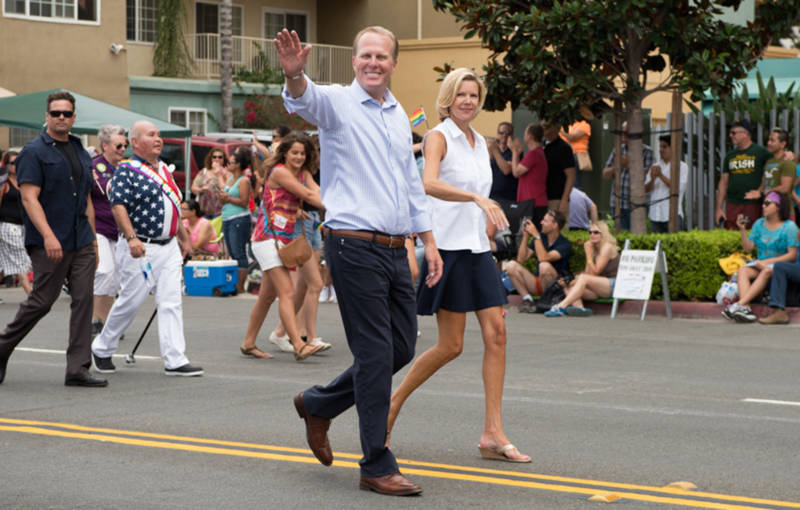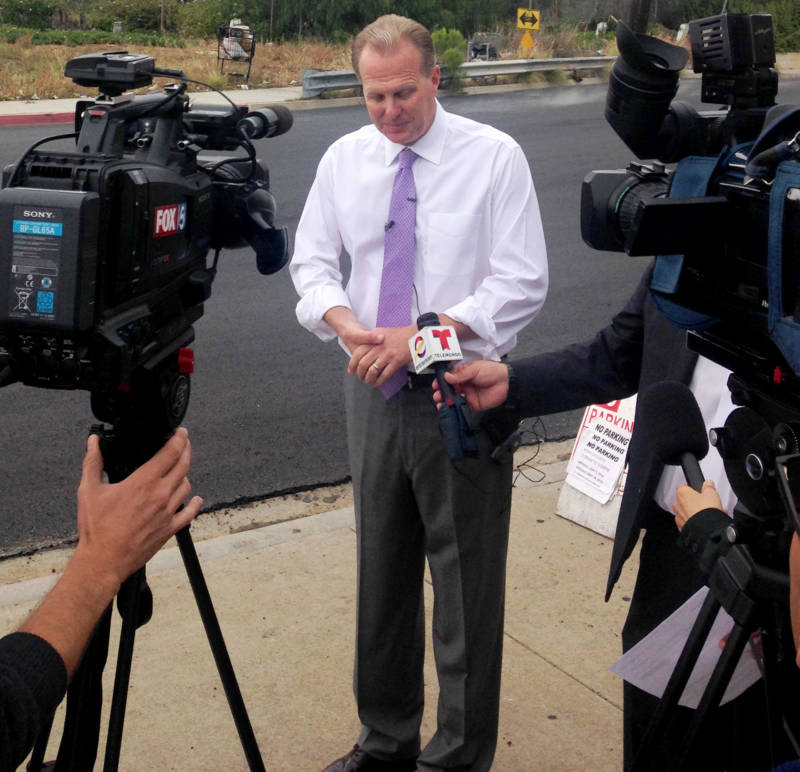Mayor Kevin Faulconer stands just to the side of a freshly paved street in Southeast San Diego, explaining the road repair progress to an assembled group of news cameras. The mayor yells while emphasizing the importance of prioritizing infrastructure improvements in this historically low-income neighborhood, both competing with the clamor of bulldozers crawling down the street behind him and revealing his genuine excitement in the work being done.
Faulconer's focus on the city's basic infrastructure needs is a window into how the Republican mayor was elected -- and is favored for re-election this year -- in a city where only a quarter of registered voters belong to the GOP. Faulconer has been able to build consensus and largely avoid protracted policy battles with the majority Democratic City Council by focusing on issues like capital improvement, for which his latest budget proposes $372.7 million. That's double the amount spent when Faulconer took office in 2014.
"That's not a partisan issue," Faulconer says. "It's about getting our city back on track, it's about getting people the neighborhood services they deserve. There's enough partisanship on the national level, that's for sure."
The idea of running a city as a nonpartisan manager or caretaker is not new, and Republican mayors such as Michael Bloomberg have won election in far bluer cities than San Diego. But Faulconer thinks his consensus-building path could be a road map for Republicans running for higher office in California, where GOP registration (27 percent) mirrors the numbers in San Diego.


